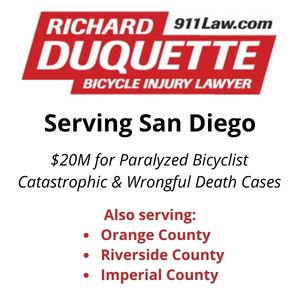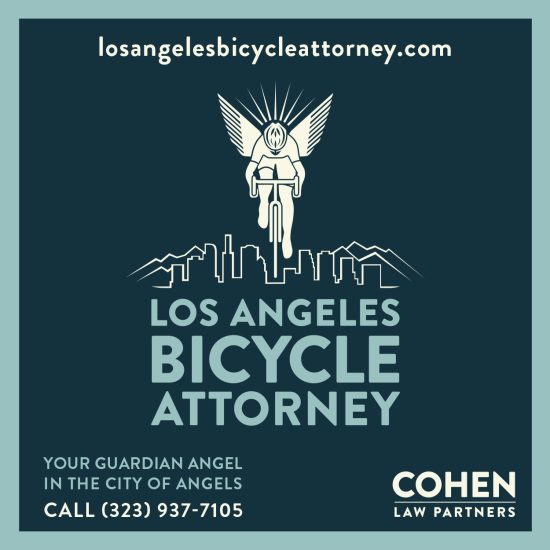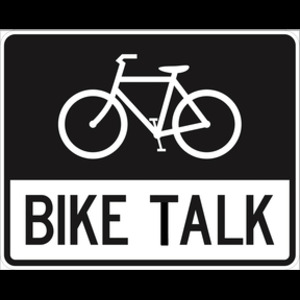
Say happy birthday to LA’s Vision Zero program.
It’s been two years since Mayor Eric Garcetti announced that Los Angeles was finally getting around to doing something about traffic fatalities.
Although not much has actually been accomplished in that time, as traffic deaths fell 6% last year after spiking in 2016.
Meanwhile, some of what was has already been ripped out at the behest of angry drivers who insist that the road does, in fact, belong to them.
And don’t seem to care who has to die as a result.
Hopefully, that will change now that the city has finally provided some funding, dedicating $27 million for the program.
Streetsblog’s Joe Linton seems to have summed up the current status of Vision Zero in the City of Angels.
Some critics are quick to blame L.A.’s Vision Zero programs for the unhealthy trend. Playa Del Rey road diet critics cite their own documentation showing a doubling of “accidents” since Vision Zero safety improvements were implemented. (If true, this would argue for more traffic calming, though that is not the conclusion they come to.)
The actual reasons for the alarming trend appears to have more to do with increased driving, low gas prices, a strong economy, and a lack of political will to take Vision Zero seriously. The program was barely funded for the first two years, until council leadership recently shepherded $27 million for the current fiscal year which just began on July 1. On top of the paucity of funding, several councilmembers have actively blocked safety improvements in their districts.
The simple fact is, we will never cut traffic deaths in Los Angeles without the political will to make it happen.
And that seems to be sadly lacking, both in the mayor’s office, and in far too many council districts.

………
Speaking of Vision Zero — or in this case, zero vision — US traffic deaths have topped 40,000 for the second year in a row.
………
LA Cyclist captures a couple of close calls on yesterday’s bike commute from Burbank to Culver City.
He calls it a typical commute.
Even though people keep telling us that no one will even ride a few miles to get to work, let alone through a handful of cities.
And especially not in LA’s unbearable winter weather.
Right?
………
It’s been awhile since we’ve heard from author and bike lawyer Bob Mionske, who writes about the obstacles to justice for bicyclists.
…If you ask the motoring public, you will likely hear that scofflaw cyclists create their own problems by choosing to ride in the street.
Convincing a driver that a lack of vigilance could potentially take someone’s life is a difficult task. After all, most drivers overestimate their driving ability — particularly when it comes to using a device at the same time. Worst of all, most of us don’t have the discipline to put our devices down when we get behind the wheel. No group is more vulnerable to this lack of discipline than a human on a bicycle. And as a roadie, you probably face the risk of being hit more than anyone else based on the hours you spend weekly on a bike in traffic…
It’s a good read, and should give you a lot to think about.
………
Local
An Op-Ed in the LA Times makes the case for accepting Bird scooters as part of the city’s transportation network. Although while people on bikes still die far too often on our streets, saying bicycling is “often lethal” is an extreme exaggeration. Last year, LA County saw one bicycling fatality per 357,000 residents; the City of LA was even safer, with one death per 442,000 residents.
KCRW looks at the new bike and pedestrian Red Car Bridge planned for the LA River.
State
Galt, California is starting work on a $5 million Safe Routes to School project, including two miles of sidewalks and dedicated bike lanes. Not bad for a town of just 23,000. And no, I never heard of it before either.
National
Peter Flax interviews Bike Snob’s Eben Weiss in a clash of bike writing titans.
An Oregon newspaper calls on the state to scrap the $15 tax on new bike sales, even as lawmakers consider broadening it.
The Utah house has overwhelmingly approved a modified version of the Idaho Stop Law, which now moves to the state Senate.
Iowa decides that instead of fixing the roads, they’ll just make bike riders wear hi-viz on roads with speed limits above 45 mph. But only in groups of 500 or less; apparently, they think drivers may actually see over 500 people riding bicycles.
A Chicago website profiles the woman responsible for ghost bikes in the Windy City.
The New York Times illustrates — literally — why self-driving cars can’t save cities.
Sad news from New Orleans, where 32-year old Muhiyidin d’Baha, a well-known leader in the Black Lives Matter movement, died after he was shot in the leg in an apparent robbery while riding his bike; he rode another six blocks before collapsing in the street.
An Orlando street will go on a four-week road diet to judge its effectiveness and reaction of the public before any permanent changes are made. Although a single month seems like a very short amount of time to give it a reasonable test.
International
How to avoid a flat.
A new Canadian study suggests that good bicycling infrastructure encourages winter bike riding. Which would be even more true here in sunny Los Angeles, if we actually had some.
A writer for the Guardian complains about “over-entitled” cyclists and their abandoned dockless bikeshare bikes clogging UK sidewalks.
It’s a well-deserved 16-months behind bars for a British driver caught on camera intentionally running down a man on a bike.
Tehran’s Car-free Tuesdays is losing momentum after 117 weeks due to a lack of safe streets and infrastructure.
Frightening dispatch from Australia, where a 72-year old man describes how he played dead after he was shot by an attacker, apparently at random, as he rode a gas-powered motorized bike on a bike path.
Australia has slapped an unexpected 5% tariff on ebikes — and is considering a similar tariff on premium bikes and frame sets — after a local bike maker complained, in a country where native bike makers make up just 1% of the market.
A New Zealand woman has restarted an off-road race series for kids that had been founded by her husband, two years after he died from a heart attack while riding.
Finally…
Cracking down scofflaw bicyclists and moped riders in the world’s most bike-friendly country.
And the best day ever is the one where you get back on your bike after an injury.
Especially a 21-day coma caused by a failed stunt.






I live in LA, I don’t have a car. Have been commuting by bike for the past 25 years. I go from Calabasas to Mar Vista (and back) twice a week. Every time I leave I think: Is it today that I will be ran over? Because every day there is someone who throws the car at me just to show who is the boss! Anyway, have been following the news on Road Diets. Semantics matter and road diet isn’t a good name. No one likes diets, it is a word that relates to something that you don’t want to do even when you should. I really think that the expression should be one that encourages empathy rather than repulse – just my humble opinion! 😉
“Complete Street” is a term that I have heard. I presume it’s supposed to mean that the street can safely accommodate all sorts of users, such as pedestrians, transit, bikes, cars, etc.
What do you think of that term?
It is definitely better than “road diet”. Something that suggests that streets are for everyone (that we all have the right to come and go safely, no matter how we choose to transport ourselves): cars, bikes, pedestrians, wheelchairs, baby strollers, dogs and cats!
I usually try to refer to it as a lane reduction, which more accurately describes what it is. However, most people know it as a road diet. so that’s what often gets used, especially if I’m responding to someone else’s story or comments.
Complete Street isn’t the right term, since not all road diets result in complete streets, and not all complete streets require road diets.
Some people also refer to the removal of a traffic lane as a road buffet, since it allows designers to choose what features they want in place of the lane. However, that one just makes me cringe.
I don’t think you can count on a politician who has national ambitions to do any good on any transportation issues. They rely too much on wealthy donors who drive everywhere. Even in NY and NJ this seems to be the case.